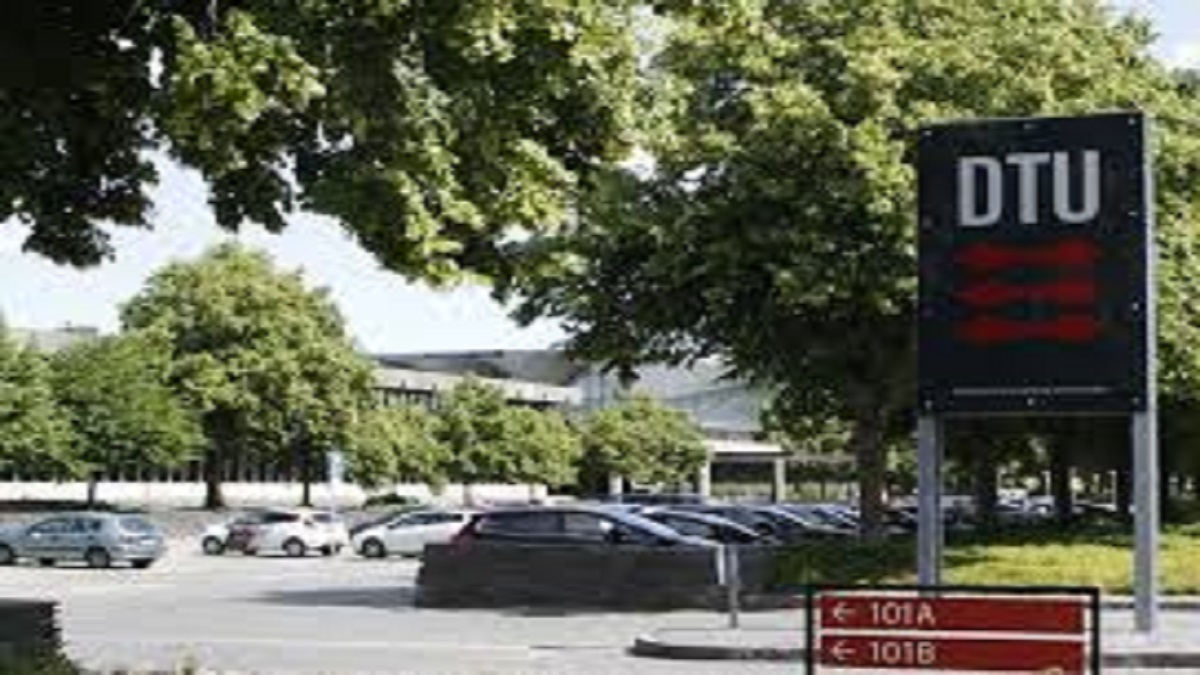
If you want to contribute to a better understanding and quantifiability of the risk and remediation options of some of the most widespread threats to our groundwater resources, then DTU Sustain offers you the opportunity to work on the scientific challenge to investigate fate, transport behavior, and remediation options of PFAS contamination in porous and fractured media. At DTU Sustain, you will shed light on the fate and the natural and enhanced attenuation of PFAS in subsurface environments based on the combination of laboratory and field work, data analyses, and numerical modeling.
For this opportunity, we seek a curious and committed PhD candidate willing to work on one of the most urgent groundwater quality threats, namely PFAS contamination. You will focus on exploring, quantifying and modeling fate and attenuation processes of PFAS contamination in groundwater and the unsaturated zone in fractured and porous geologic media, such as clayey tills, sands and limestone.
The project outcomes will have direct impact outside academia thanks to a close collaboration with the Capital Region of Denmark. Furthermore, water supply companies, public authorities, consultants and research institutions will supply data, follow and discuss the scientific outcomes, and be involved in the project. We offer a 3-year PhD scholarship supported by the the upcoming PFAS Center activities.
Responsibilities and qualifications
Your overall focus will be on the quantification of the temporal evolution of PFAS distribution and fluxes including possible natural or enhanced attenuation processes that can limit the spreading. Goals include to analyze, conceptualize, and interpret the connection between concentration measurements in soil, unsaturated zone and groundwater. The measure data will be used to access the risk and time frame of PFAS leaching from various sources to the groundwater and potential receptors (drinking water resources and surface water). Furthermore, a focus is on preferential flow and matrix diffusion, and on the possibilities to enhance attenuation, control PFAS spreading, and manage and remediate PFAS contaminated sites.
To achieve this, your primary tasks will be to
- Be involved in planning, carrying out, and evaluating laboratory and field measurements and experiments.
- Determine and evaluate the controlling factors for PFAS remediation by assessing experimental, modeling and field data from ongoing activities and projects focusing on PFAS leaching.
- Create and apply numerical models and digital tools to describe the fate and transport of different PFAS compounds under unsaturated and saturated conditions with a focus on Danish geologies with both porous and fractured media.
- Work together with people from consultancy, public authorities, and international partners on PFAS activities.
You are expected to have good understanding of groundwater flow and solute transport processes including knowledge of attenuation processes, hydrogeology and hydrogeochemistry, and preferably with PFAS. Also, you should have both experience with experimental work and modeling skills (preferably with Comsol Multiphysics) and good analytical thinking. You must be proficient in English and Danish, both written and spoken.
The project will be supervised by Associate Professor Klaus Mosthaf (DTU Sustain) and co-supervised by Prof. Poul L. Bjerg (DTU Sustain) and Senior Researcher Annika Fjordbøge (DTU Sustain).
As a PhD student at DTU Sustain, you will be involved in teaching activities and co-supervise BSc and MSc student projects related to your PhD project. You will also disseminate the results of your project at national and international conferences and interact with other researchers at the forefront of international research on PFAS fate, transport and attenuation in subsurface environments.
We seek motivated applicants who have demonstrated their ability to work both independently and in teams and have skills in navigating the challenges posed by working across different disciplines, cultures, and working environments.
You must have a two-year master’s degree (120 ECTS points) or a similar degree with an academic level equivalent to a two-year master’s degree.
Approval and Enrolment
The scholarship for the PhD degree is subject to academic approval, and the candidate will be enrolled in one of the general degree programmes at DTU. For information about our enrolment requirements and the general planning of the PhD study programme, please see DTU’s rules for the PhD education.
Assessment
The assessment of the applicants will be made by the supervisor team consisting of DTU Sustain supervisors and the Head of Section “Environmental Contamination and Chemicals” at DTU Sustain.
We offer
DTU is a leading technical university globally recognized for the excellence of its research, education, innovation and scientific advice. We offer a rewarding and challenging job in an international environment. We strive for academic excellence in an environment characterized by collegial respect and academic freedom tempered by responsibility.
Salary and appointment terms
The appointment will be based on the collective agreement with the Danish Confederation of Professional Associations. The allowance will be agreed upon with the relevant union. The period of employment is 3 years.
The starting date is as soon as possible.
The position is full-time, and the place of work is DTU Lyngby Campus.
You can read more about career paths at DTU here.
Further information
Further information may be obtained from Klaus Mosthaf, DTU Sustain, klmos@dtu.dk
You can read more about DTU Sustain at https://sustain.dtu.dk/
If you are applying from abroad, you may find useful information on working in Denmark and at DTU at DTU – Moving to Denmark. Furthermore, you have the option of joining our monthly free seminar “PhD relocation to Denmark and startup “Zoom” seminar” for all questions regarding the practical matters of moving to Denmark and working as a PhD at DTU.
Application procedure
Your complete online application must be submitted no later than 24 January 2025 (23:59 Danish time).
Applications must be submitted as one PDF file containing all materials to be given consideration. To apply, please open the link “Apply now”, fill out the online application form, and attach all your materials in English in one PDF file. The file must include:
- A letter motivating the application (cover letter)
- Curriculum vitae
- Grade transcripts and BSc/MSc diploma (in English) including official description of grading scale
You may apply prior to obtaining your master’s degree but cannot begin before having received it.
Applications received after the deadline will not be considered.
All interested candidates irrespective of age, gender, disability, race, religion or ethnic background are encouraged to apply. As DTU works with research in critical technology, which is subject to special rules for security and export control, open-source background checks may be conducted on qualified candidates for the position.
DTU Sustain – Department of Environmental and Resource Engineering – is one of the largest university departments specializing in environmental and resource engineering in Europe. The department conducts research, development & scientific advice and provides educational programs and service to society. We are working to develop new environmentally friendly and sustainable technologies, methods and solutions, and to disseminate this knowledge to society and future generations of engineers. The Department has approximately 300 staff members from more than 30 nationalities.
Technology for people
DTU develops technology for people. With our international elite research and study programmes, we are helping to create a better world and to solve the global challenges formulated in the UN’s 17 Sustainable Development Goals. Hans Christian Ørsted founded DTU in 1829 with a clear mission to develop and create value using science and engineering to benefit society. That mission lives on today. DTU has 13,500 students and 6,000 employees. We work in an international atmosphere and have an inclusive, evolving, and informal working environment. DTU has campuses in all parts of Denmark and in Greenland, and we collaborate with the best universities around the world.




